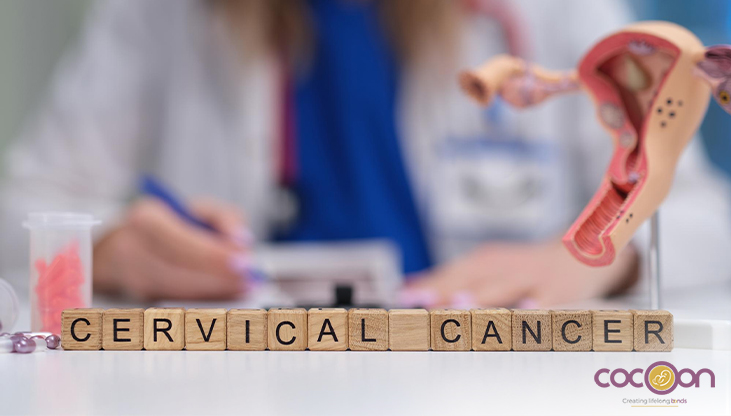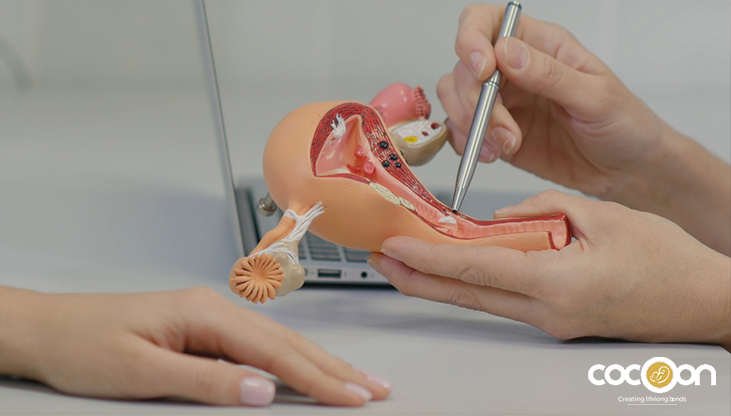Hey! beautiful lady. Kudos to you, as you have come a long way! From managing the ups and downs of your teenage years, welcoming adulthood, going through pregnancy, and now entering menopause, you deserve a big pat on your back.
However, did you know that just like you adapted through every phase of life, your heart now needs a little extra attention? Menopause isn’t just about hot flashes or mood swings; it’s a natural phase of your life that begins when you haven’t had your period for 12 straight months (usually after the age of 45, it varies person to person ).
During this menopausal phase, your body undergoes significant changes, especially in hormone (estrogen) levels, making your heart more vulnerable to diseases. But the good news is that with the right awareness, professional help and small lifestyle changes, you can protect your heart just like you’ve taken care of yourself all along. Continue to read why your heart deserves priority during menopause and how you can keep it strong and healthy.
Why Your Heart Needs Special Care During Menopause
Menopause brings significant changes in a woman’s life, and it also invites new difficulties for keeping your heart healthy.
Here’s why your women's heart health needs special care during menopause:
- When estrogen levels decrease during menopause, the natural protection it provides to your heart also decreases. This makes your heart and blood vessels work harder to support you throughout the day.
- Menopause increases the chances of weight gain around the waist and increases levels of bad cholesterol (LDL), which can add a burden on your heart.
- Blood pressure starts to go up after menopause, so it’s crucial to monitor it regularly to avoid heart issues later on.
- Your body may become insufficient to handle sugar and fat, increasing the chances of diabetes and heart disease in women if not managed properly.
- Simple healthy habits like eating well, staying active, quitting smoking, and managing stress play a big role in protecting your heart.
- After menopause, plaque or fatty substances that pile up in the heart's arteries grow faster in females compared to men of the same age. This is due to losing the oestrogen hormone that kept arteries healthier and more flexible.
- Hot flushes and night sweats during menopause are linked to higher blood pressure and risks for heart problems.
- Women may feel depressed during menopause, which increases the chances of heart disease in women more than usual.
To protect your heart from all these complications, all you need to do is follow professional advice and suggested lifestyle changes.
How do I protect my heart health after menopause?
There are simple ways to keep your cardiovascular risk at bay after or during menopause.
1. Stay Active to Support Your Heart
Stay active, as daily movements are good for your heart. Do at least 150 minutes of moderate exercise weekly, like walking or cycling. This will help lower blood pressure and cholesterol, contributing to a strong heart.
2. Say Yes to Heart-Friendly Diet
Eat a heart-healthy diet such as:
- Eat more low-calorie, nutrient-rich and fibre-rich foods like fruits and vegetables.
- Include more whole grains in your plate
- Take the best protein sources like lean meat, poultry and fish
- You should have low-fat or fat-free dairy products
3. Manage a Healthy Weight
Keep your weight in control, especially around the waist, as extra belly fat increases heart risk during or after menopause.
4. No to Smoking and Limit Alcohol
Don’t smoke and limit alcohol since both raise blood pressure and compromise your heart and vessels. Quitting smoking is the best heart-healthy gift.
5. Keep Stress Under Control
Channel stress via relaxation techniques like yoga, meditation, dance or hobbies you enjoy, as unnecessary stress can impact your heart health negatively.
6. Regular Health Checkups
Schedule regular health checkups to keep an eye on your blood pressure, cholesterol, and blood sugar. Early detection of any negative heart health changes is the key to preventing bigger cardiovascular risks later.
Conclusion
Dealing with these menopausal changes alone can feel tough, but remember, many women experience the same things. You don’t have to face it on your own. Consult your doctor in a timely manner and follow the instructions. If needed, your doctor might suggest hormone replacement therapy (HRT), which can help ease symptoms and safeguard your health.
Taking small steps like healthy eating, staying active, and regular checkups will keep you feeling good. Now you know how to stay strong during menopause. The one last thing you need to know is that menopause is a phase, not the end. Cocoon Hospital says the right support and care during this phase will help improve your quality of life.
FAQs
Q: What signals the end of menopause?
A: Your menopausal phase can be considered officially over when you haven't had a period for 12 straight months. Symptoms like hot flashes and night sweats generally begin to calm down, and your hormones stabilise at a steady level.
Q: Can menopause mess with your heart?
A: Menopause and cardiovascular risk are highly linked due to a drop in the protective hormone, oestrogen.
Q: What are the 34 symptoms of menopause?
A: Every woman's experience with the menopausal phase is different, and there can be a wide range of symptoms that they may notice. The common 34 symptoms of menopause are:
- Variations in periods
- Hot flashes
- Night sweats
- Anxiety
- Low mood
- Mood swings
- Brain fog
- Forgetfulness
- Low sex drive
- Vaginal dryness or pain
- Breast tenderness
- Headaches or migraines
- Trouble sleeping or insomnia
- Muscle and joint aches
- Bloating
- Electric shock-like sensations
- Restless legs
- Itchiness
- Poor concentration
- Brittle nails
- Dry skin
- Tingling sensations
- Burning mouth syndrome
- Fatigue
- Body odor changes
- Changes in taste and smell
- Hair thinning
- Weight gain
- Increased urinary infections
- Allergies or skin changes
- Dizziness or faintness
- Heart palpitations
- Fragile bones and reduced muscle mass
- Irritability

















